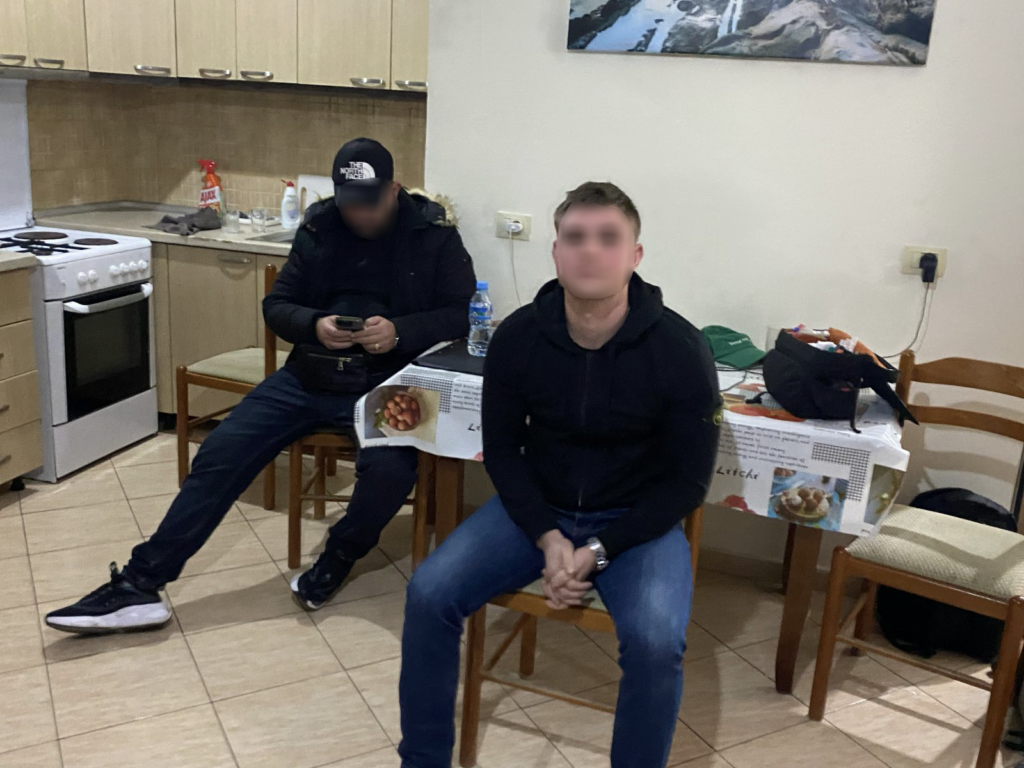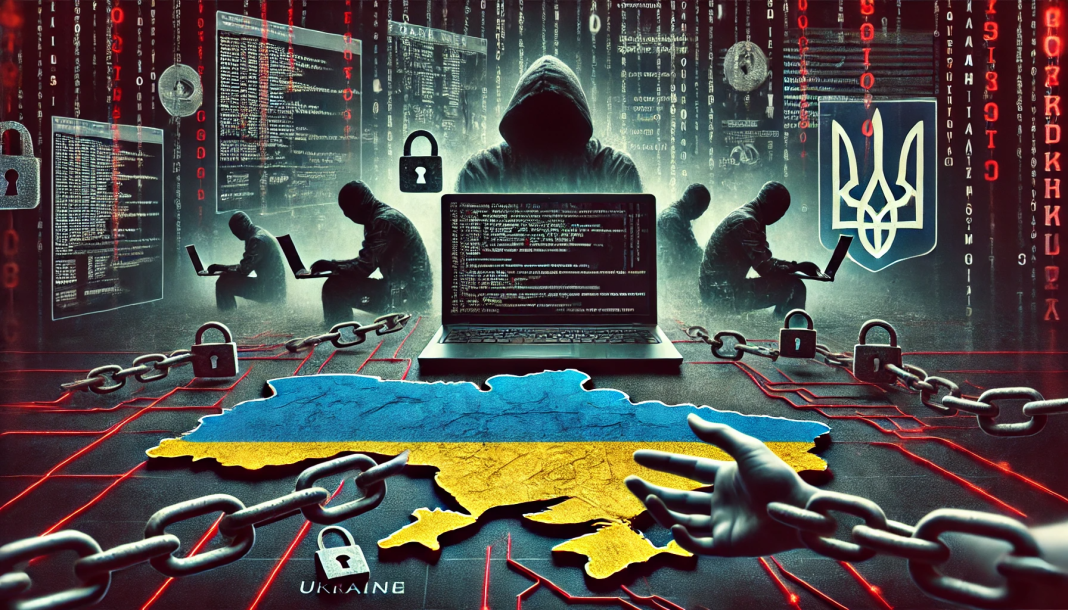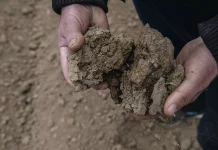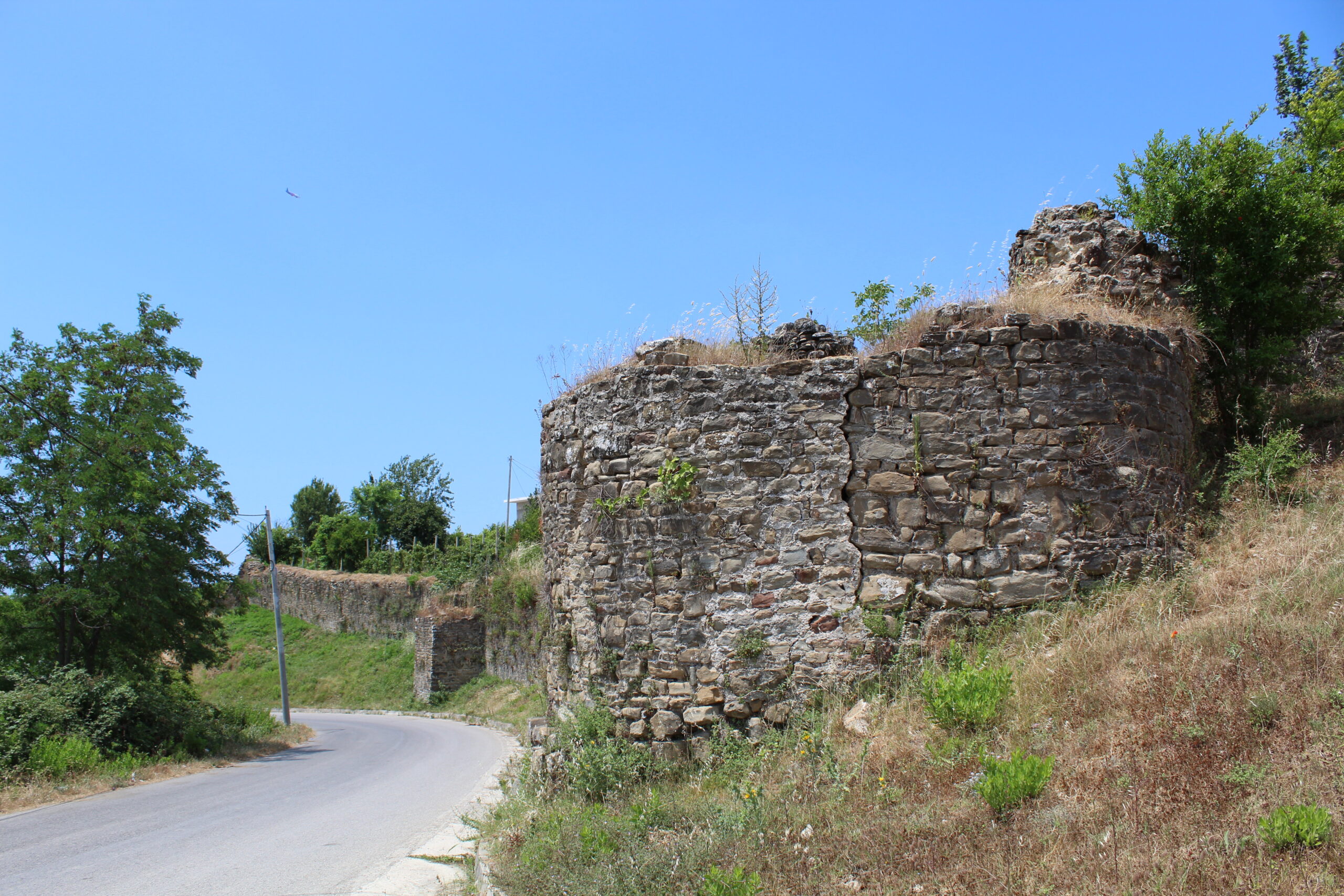By Anila Hoxha
Like a worried grandfather about the disappearance of his grandson, with the initials V. S., he sat in front of a computer in early November 2024 and, through email, informed the Ukrainian embassy in Tirana about what would later become the key to an extraordinary discovery in the field of organized crime. The elderly man, S., reported that his grandson was being held against his will and forced to work in Albania. The location he knew was the city of Vlora. However, his grandson, a young man talented in the field of IT, later identified by the initials Z. M., was just one of many others who, after being recruited through mafia channels in Warsaw, were trafficked to Albania, where they worked under the constant threat of violence.
What they were supposed to do as IT professionals was to recruit people through dark web sites, who, after being lured, accepted offers to commit crimes, the main one being the transportation of drug shipments to various European countries. Each of them was to be paid in virtual currency. Investigations so far show that the traffickers who forcibly held 19 Ukrainians in Vlora are suspected of being part of an international organization, which, according to preliminary information from Albanian authorities, appears to have the structure of the ‘Khimprom’ organization. The name of the organization was confirmed to Faktoje by two independent sources, both of whom were part of the investigative teams established on November 11, 2024.
What was found?
In an interview with Faktoje, Elidon Çela, the current director of the Vlora Regional Police, was quite reserved about the investigative actions previously carried out by the local police.
Meanwhile, the prosecutor’s office in this city, faced with solid evidence, declared incompetence and transferred the case to SPAK for further proceedings.
The case was officially registered in Tirana on January 23, 2025, with case number 18, covering charges of ‘Trafficking of adult persons’ in cooperation, as part of a criminal group, and crimes committed by a criminal organization.
‘Immediately after receiving the information, anti-trafficking and crime investigation teams were activated, first to gather data on the neighborhoods where the Ukrainian citizens were residing. We then identified two locations, both of which were under surveillance, where the trafficked youths were found,’ Çela briefly shared with Faktoje.
In fact, the police’s official statement at the time indicated that, ‘The trafficked individuals were coerced, through threats and the use of both physical and psychological violence, to engage in the recruitment of other individuals in European countries using various social media platforms. The aim was to exploit them for criminal activities, such as drug distribution and trafficking, which also took place in European countries.’
In addition to the seizure of 18 PCs and travel passports, what convinced investigators that this was a significant case were the testimonies of the trafficked young people, who had their passports confiscated during their nearly one-month stay in Albania to prevent them from escaping. The house, according to the available evidence, was rented via Airbnb about a month earlier.
Testimony

In the photo: The trafficked Ukrainians
It was a one-story building in the ‘Demokracia’ neighborhood, located near a private school. According to the report: ‘The one-story building with locked doors and windows gave the impression of an uninhabitable house. The police contacted the property owner, and together with him, they went to the site. The door was initially opened by an individual with the initials M.P., who told them he was living in the house with his family. To verify the information, the police entered the house, where they found six other individuals with Ukrainian citizenship sitting in the living room, each with a laptop and typing on various applications.’
Among them, the police identified the informant’s nephew, Z. M.
A young man with Ukrainian citizenship but born in Krakow, Poland, he only aspired of office work. As he recounted to the police, he started his search in a field where he felt most skilled, IT.
‘I saw an ad on Telegram about a job offer. I contacted someone named Fresko on Telegram, who informed me about an interview in Warsaw, Poland. I would take a polygraph test.’
In Warsaw, the polygraph test was conducted at an address the young man later shared with Albanian authorities.
‘They informed me two days later that I had passed the polygraph test and was accepted for the job. Afterward, I underwent three days of training. One of the main figures, named Y., told me that I would go to Albania for work because the conditions were good. The tickets were booked by someone named M., who was known as ‘Friday.’
At Rinas Airport, he was welcomed by the same person he traveled with to Vlora, along with two other Ukrainians who were on the same flight. ‘At first, we went to another house, but there was no space because there were many others. They took us to another house that was empty, just for us,’ says the young man with the initials Z.M. In the following days, the young man saw how the house filled up with other Ukrainians his age. ‘The person with the nickname ‘Kika’ took our passports and told us that if we didn’t follow their rules, we would end up like some people who had been recorded on video. The video showed scenes where some people were being violently beaten, with their limbs even broken, and in another video, they were shown burning down a house.’
Convinced, the young people followed the traffickers’ and group’s instructions, sending links from programs with robots, where they selected people to whom they offered to transport drugs via dark-webs. ‘When these people accepted the offer,’ says the young man, we recruited them and then handed them over to the person with the nickname ‘Kika,’ who then passed them on to the person with the nickname ‘Mustangu’. What other IT specialists also confirm is that this is a well-organized criminal scheme of organized crime. For each recruitment, they were paid $25, and it was promised that their weekly salary would be $250.
The Special Prosecution writes in the file that ‘upon examining various pages and addresses opened on laptops by the Cybercrime Directorate, it was found that there were communications showing how citizens from European countries were recruited for the purpose of distributing narcotics.’
From the files held by Faktoje, the testimonies of Ukrainians who found jobs through Telegram reveal the identities of traffickers who are still under investigation by the SPAK.
Currently, Albania has sheltered the IT specialists in a state center, while the judge handling the case has also been engaged, and at the request of the SPAK, she is hearing the testimonies of each trafficked person, who are confronting the identities of the citizens who abused them and other foreigners who took their passports.
The citizen with the initials K.G., 24 years old, is from Belarus and is one of the individuals found in a second apartment adapted by the foreign criminal organization for the same purpose. He shared the same story in the special court, with the only difference being that his trainer was a person with the pseudonym ‘Veterineri.’
‘When I started the job, everything seemed strange, and I remember making a mistake during the process. Kika beat me, and another person with the nickname ‘Veterineri’ filmed it and sent the video to the higher-ups to show that I was punished for the mistake I made. They showed us videos where, for mistakes, fingers were broken, and they threatened to kill us. We had a chat group where we, along with our superiors, were members, and we constantly received threats and pressure. I saw a video where someone was urinated on in the mouth, and this group was specifically created so we would work more and be careful not to let these things happen to us,’ the 24-year-old revealed.
With a concrete list of suspects, SPAK believes that, based on the available information, the ‘Khimprom’ organization, based in Russia, was represented in Albania by the citizen with the initials N.K., known as ‘Kika.’
‘The criminal organization that the individuals mentioned above were part of is called ‘Khimprom,’ based in Russia. It is a very powerful criminal organization involved in the distribution of narcotic substances and has a wide reach in many countries,’ one of the documents made available to Faktoje details.
This is why, in the face of this cartel, SPAK has decided to secure evidence and take testimony from the trafficked Ukrainians, who, according to suspicions, may be under threat from the cartel. As of the publication of this news, SPAK has not yet issued an official statement.
Khimprom
Who exactly is ‘Khimprom,’ the organization suspected of being behind the trafficking of Ukrainians, based on the information available to SPAK? Despite its original name, which may sound like a legitimate group, this organization is not only involved in the production, distribution, and sale of drugs but also operates a widespread network of call centers. While it’s unclear exactly when ‘Khimprom’ first appeared, its initial operations began in the Russian city of Sterlitamak no later than 2012.
There, three young individuals discovered a way to exploit a loophole in the law and started mass-producing synthetic mixtures, commonly known as ‘spice.’ As the state slowly cracked down on one of these substances, the group would alter the chemical composition of the drug and reintroduce it to the market. These three individuals were all students at the local branch of the State Oil and Gas Technology University in Ufa.
According to the Russian Ministry of Internal Affairs, by 2017, ‘Khimprom’ had an annual turnover exceeding two billion rubles, with at least 1,000 people involved in its operations. The information gathered so far suggests that ‘Khimprom’ had substantial protection, did not take risks, and did not import synthetic drugs from China, instead producing them in their own laboratories within Russia.
At least 12 regions of the country had logistical centers for finished products. In addition to the efforts of the General Prosecutor’s Office to block online sources, ‘Khimprom’ openly sold drugs on its website under the same name. Furthermore, call centers were organized in Ukraine. Recruitment was done through advertisements in newspapers, on television, or on flyers in the metro, offering jobs as couriers with a good salary of $6,000 to $8,000 per month. Only during the job interview did people learn that the job involved traveling to Russia. Among those who responded to the ads, a selection process took place, where people were categorized according to their specific tasks, such as warehouse workers, drug producers, or call center employees. Every individual had to undergo a polygraph test (lie detector).
Afterward, there was a one-month ‘training’ in Ukraine, depending on the job’s function. Many of the workers were issued falsified Russian passports.
Thanks to the use of anonymous messengers, cryptocurrencies, and clandestine methods, the average employees or buyers within the organization were unable to provide any details about the higher hierarchy of the organization in case of an arrest—they simply did not have direct contact with them.
Russian security agencies were convinced from the outset that the true leadership of the group was based in Ukraine. This led to several operations
conducted by the Federal Drug Control Service of Ukraine, with activities dating back to 2016. According to reports, the organization operated freely in Ukraine until 2019, with its offices located in the heart of Kyiv.
In March 2019, the Security Service of Ukraine, in cooperation with the General Prosecutor’s Office, launched a special operation to arrest the group’s leaders. However, one of the leaders managed to escape from Ukraine, initially seeking refuge in Latin America, specifically Panama, before moving to Miami, and finally settling in Mexico.
Why Vlora?
The large-scale police operation, coordinated with SPAK, took place in Vlora. Previously, Faktoje reported on the rising concerns over the entry of Russian nationals into Albania, initially reported as tourism, which was also associated with a darker phenomenon involving suspicious activities by some Russian citizens. This trend has raised alarms among both intelligence and anti-terrorism services. Following the start of the aggression in Ukraine, Albania, in line with other countries imposing sanctions on Russia, has continuously targeted specific individuals and entities with sanctions. Alongside these developments, there has also been an increase in the number of Russian nationals granted residence permits in Albania, with a noticeable surge in interest in investing in real estate along the coastline, particularly in Vlora.
The arrested individuals (with initials) who have officially been named as part of the investigation are:
- M.P., 27 years old, from Harkov, Ukraine
- N. K., 23 years old, from Kyiv, Ukraine
- O. T., 24 years old, from Minsk, Belarus
- M.S., 22 years old, from Kyiv, Ukraine
- K. M., 35 years old, residing in Poland, wanted










